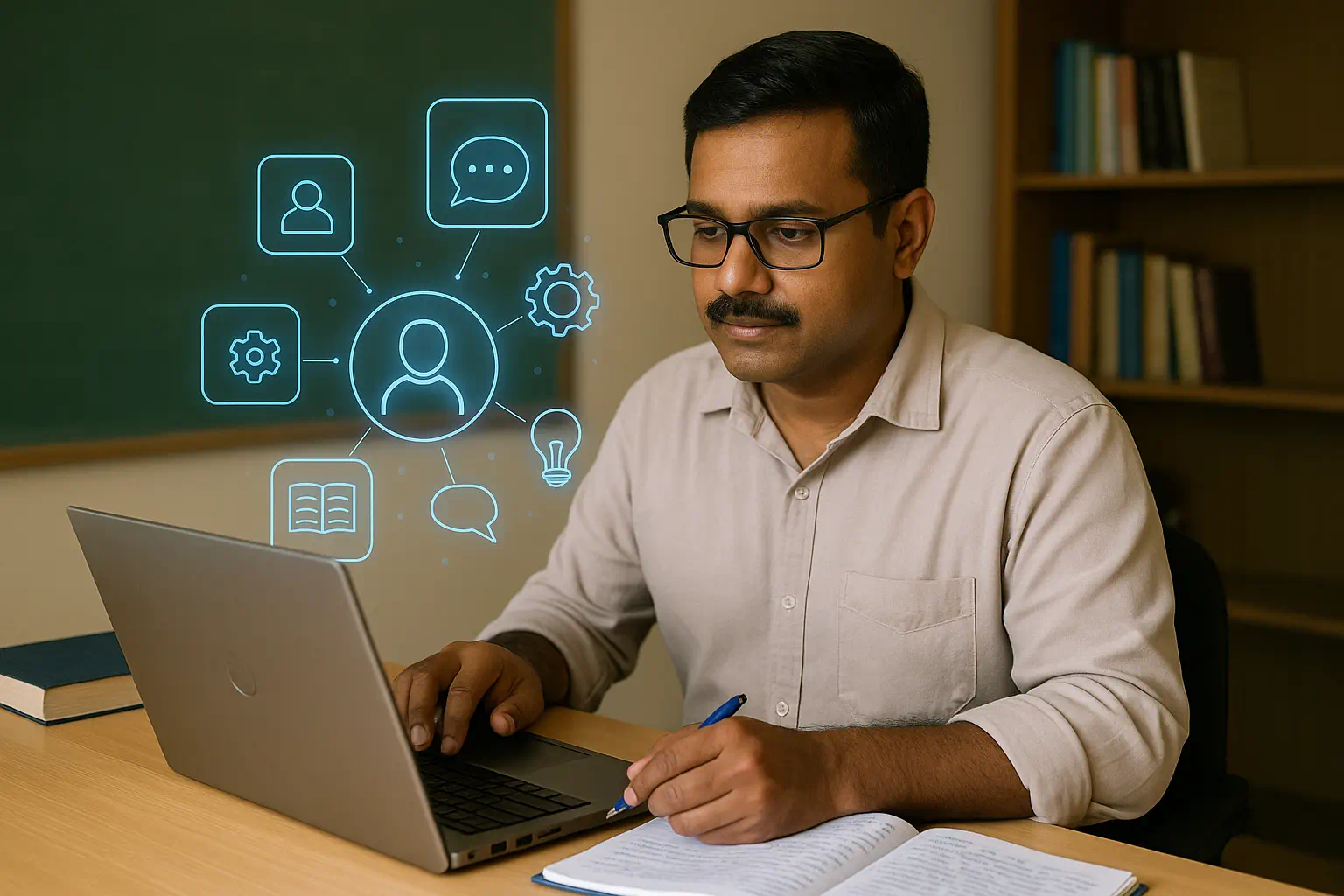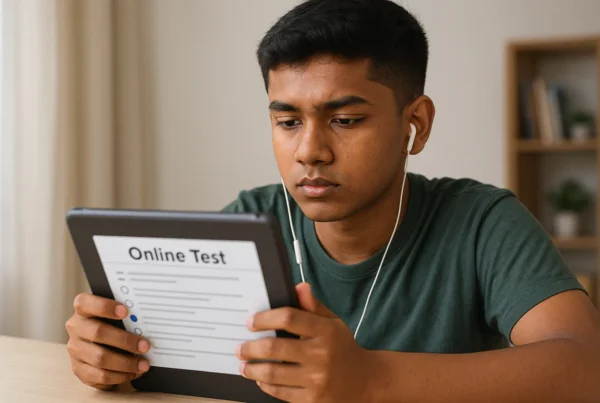7 Ways AI Can Be Your Lesson Planning Partner
Introduction to a New Weekly Series for Reflective Teaching with AI
Lesson planning is a sophisticated balancing act: preparing explanations, anticipating student questions, and managing behaviour — all before stepping into the classroom. Even the most carefully written plan can be derailed by a misconception you didn’t predict or an unexpected question from a student.
This is where AI lesson planning tools can help. Recent research shows that large language models (LLMs) can act as reflective teaching partners. They won’t replace your professional expertise, but they can help you simulate lessons, anticipate challenges, and refine your planning.
This blog is the first in a new weekly series for teachers in Bangladesh and beyond. Each week, we’ll explore one AI strategy in detail, showing how it can make lesson planning sharper, faster, and more reflective.
The Evidence Base for AI in Lesson Planning
Research on AI in education is growing rapidly:
-
Simulate → Reflect → Refine: A study in npj Science of Learning (Zhao et al., 2025) found that lesson plans refined through LLM simulations were rated as highly effective, and comparable to plans from expert teachers 【PubMed PMID: 39910074】.
-
Teacher time saved: In Karnataka, India, the Shiksha Copilot project showed that over 1,000 teachers reduced planning time and stress with AI assistance, while shifting towards activity-based pedagogy (Ramesh et al., 2025).
-
Pedagogy-aligned planning: Prototypes like LessonPlanner, based on Gagné’s Nine Events of Instruction, helped novice teachers design more coherent lessons than when using generic prompts (Zhou et al., 2024).
-
Subject-specific improvements: Fine-tuned AI tools in mathematics education supported teachers to produce clearer explanations and more structured activities (Wang et al., 2025).
Together, these findings show that AI lesson planning partners can save time, reduce stress, and improve the quality of teaching materials.
The Series Roadmap: 7 Ways AI Can Help Teachers
-
Rehearse Your Lesson with Virtual Students
AI can role-play a class of mixed-ability learners — asking questions, making mistakes, and sometimes going off task — so you can practise before the real lesson.
👉 Next week’s post will explain how to set this up. -
Spot Common Misconceptions
AI can highlight likely student errors, so you can plan strategies to address them early. -
Improve Your Questioning Techniques
Generate probing questions that push students to explain, justify, and connect ideas. -
Strengthen Explanations through Multiple Formats
Reframe concepts visually, step-by-step, or with analogies — and choose what works best for your learners. -
Build Better Assessments & Feedback
Draft diagnostic quizzes or refine feedback statements for clarity and impact. -
Practise Behaviour Scenarios Safely
Simulate classroom management challenges in a safe, low-stakes environment. -
Reflect on Your Plan Like a Coach
Ask AI: Does this sequence flow logically? Where might students get stuck? Am I balancing teacher talk with student activity?
Why This Matters for Teachers in Bangladesh
For teachers facing large class sizes, heavy workloads, and limited preparation time, AI offers:
-
Efficiency: Faster lesson planning without compromising quality.
-
Clarity: Anticipating misconceptions and refining explanations.
-
Confidence: Practising responses and feedback in advance.
-
Professional Growth: Developing reflective habits supported by global research.
Final Thought
AI is not a shortcut to great teaching — but it is a powerful preparation partner. Over the coming weeks, we’ll unpack each strategy with practical AI prompts, classroom examples, and tools designed for teachers in Bangladesh.
👉 Week 1: How to rehearse your lesson with virtual students.





